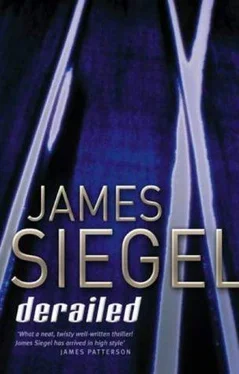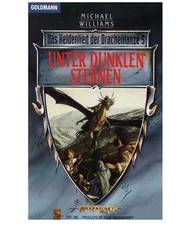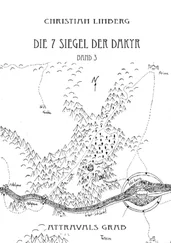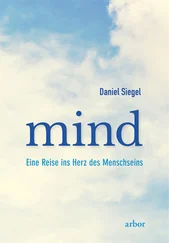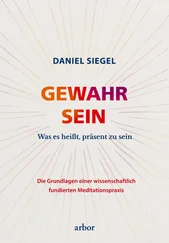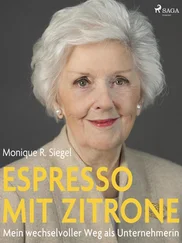I managed to find a drugstore in Chicago that carried the special insulin Anna needed, the one made from pig cells that was slowly being phased out in favor of the synthetic insulins that Anna didn’t respond to as well.
Deanna, who used her previous middle name of Kim, took a part-time job as a receptionist to help out with the family finances.
And an odd and wondrous thing happened.
We became happy again.
It dawned on us gradually, in small increments here and there, until we could finally and fearlessly say it out loud.
We’d been given another chance at this thing called family. We grabbed it with both hands and held on for dear life. It felt a little like when we’d first started out, newly married and imbued with passion and hope. We didn’t know how long we’d have Anna for, that’s true, but we were determined to appreciate every single minute we did. We talked about it now, comforted each other, found strength in each other. Silence was forever banned from our doorstep. We became a kind of poster family for communication.
And slowly, intimacy came back as well. The first night we were together again, with Anna safely asleep in bed, we tore into each other with a kind of desperate abandon. Sex had taken on a new edge and, with it, a new excitement. We mauled each other, we banged bodies, we screwed ourselves sweaty, and in the end we looked at each other with a kind of amazement. Was that really us?
Two months later, Deanna announced she was pregnant.
“You’re what?” I said.
“With child. Knocked up. Preggers. So,” she said, “what do you think? Should I have an abortion?”
“No,” I said.
We’d wanted another child once. Anna’s getting sick had changed our minds. But now, I believe I wanted it as much as I’ve ever wanted anything.
“Yeah,” Deanna said. “I kinda feel that way, too.”
Seven months later, Jamie had a brother. We called him Alex. Call it a homage to Jamie’s previous incarnation — and to my grandfather Alexander.
I had one close call.
I was coming out of Roxman’s Drugs with Anna’s prescription. I was marveling at the actual severity of a Chicago winter; Windy City didn’t quite do it justice.
Frigid City. Subzero City. Frozen Stiff City. Yes.
I was wearing a parka, knit cap, earmuffs, fur-lined gloves. I was still quivering. Strands of frozen moisture sat on my upper lip. I was looking for my car in an outdoor parking lot and hoping it would start.
I walked past an office building and bumped into someone with blond hair.
“Excuse me,” I said, turning around to face her.
It was Mary Widger.
“That’s okay,” she said.
I whipped back around and kept walking. I remembered — one of our packaged goods clients had its headquarters here. She must’ve been coming from a meeting. When I turned the corner and peeked, she was still standing there.
Did she recognize me?
I don’t think so. I still had my beard. I was bundled in leather and fur. Still, it felt like my heart went on hiatus for a while. I found it hard to breathe.
I waited a few minutes, enveloped in my own clouds of hot vapor, then walked back to the corner and peeked again.
She was gone.
FIFTY
Alex was two.
He was talking up a storm, doing calisthenics on the living room furniture, and generally delighting, amusing, and captivating us on a daily basis.
Kim was back to working as a receptionist.
Jamie was holding her own. Medically, scholastically, even socially. She’d made friends with two girls who lived down the road. They had sleep-overs and pizza parties and went to the movies together.
Mr. Wid? He was teaching A Separate Peace and several works of Mark Twain in seventh-grade English.
One of Twain’s classic lines seemed remarkably apt these days.
The reports of my demise are greatly exaggerated.
Jamie wasn’t the only one who’d built up a social circle. After keeping a low profile for a good part of a year, I’d finally taken some of my colleagues up on their invitations. Slowly, we began to see people. A dinner. A movie. A Sunday get-together.
My previous life began to fade. Not just because time had passed, but because this life was better in so many ways—all the ways that really counted, I now knew. I’d made more money before, that’s true. By all the usual standards of American success—a prestigious job, a nice salary, a large house—this life was a come-down. But in this life I could measure job success in something other than dollar signs. My annual bonus was seeing children who came into my class struggling and unmotivated leave it on track and engaged. It was good for the soul. And I didn’t have disgruntled and demanding clients looking for my head every day, either.
And married life? It continued to surprise in ways big and small.
Lawrence Widdoes was a happy man.
One Saturday in the summer, I took Alex with me into Chicago.
I had to pick up another prescription for Kim, and I thought I’d take Alex to the Children’s Museum.
First, we went to Roxman’s Drugs.
The druggist greeted me by name. We were old pals now. He asked me how I was doing.
Fine, I said.
He said the weather was too hot.
I agreed with him — we were stuck in the middle of an unrelenting heat wave. Something I was only too aware of, since I was teaching summer school in a building with no air-conditioning. At the end of each day, I came home drenched.
The druggist slipped a lollipop to Alex, whose eyes went wide, the way kids’ eyes do when you present them with their version of money. He made me unwrap it for him, then popped it into his mouth and smiled.
Then the druggist’s assistant walked over and said: “Mr. Widdoes? I’m sorry, I thought you understood. I said the insulin won’t be in till Monday.”
“What?”
“Remember, I said Monday.”
“You said Monday when?”
“When you called. I told you that.”
“When I called?”
“You asked me if the insulin was in. I said Monday.”
“You mean my wife. She must’ve called you.”
He looked puzzled, shook his head, shrugged. “Okay. Well, it’s not in till Monday.”
“Fine. I’ll come back.”
We went to the Children’s Museum.
There were several hands-on exhibits. Alex climbed through a giant left ventricle and into a model of a heart itself, where he sat down and refused to budge. He knew I couldn’t climb in there with him, and he relished this momentary independence. I had to wait him out.
Eventually he appeared from the right ventricle.
He saw what his weight was on Mars.
He tapped in Morse code.
He finger-painted on a computer.
He put on bird’s wings.
I took him to the museum café, where I bought him a hot dog and fries — but only if he promised not to tell Mommy, who was waging a personal crusade against junk food these days.
Sitting there eating, I had what you might call a flashback.
Something was bothering me. It was sitting on my shoulder and buzzing in my ear. I tried swatting it away, but it wouldn’t leave. I couldn’t kill it. It was maddening.
I remembered sitting and eating with Lucinda, Didi, whatever her name was. I remembered pouring my heart out to her the day she’d asked about my daughter. About Anna. I remembered telling her something.
I suddenly felt cold.
I took my cell out and called Kim.
“Honey?” I said when she picked up.
“Yes, hi. How’s it going?”
“Fine. After this we’re going to the museum of dead parents. I feel like I’ve run a marathon.”
“Then he must be having a good time.”
“You could say that. Look, I wanted to ask you something.”
Читать дальше
